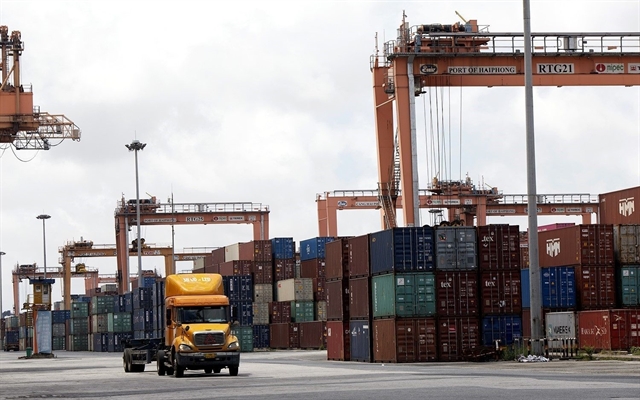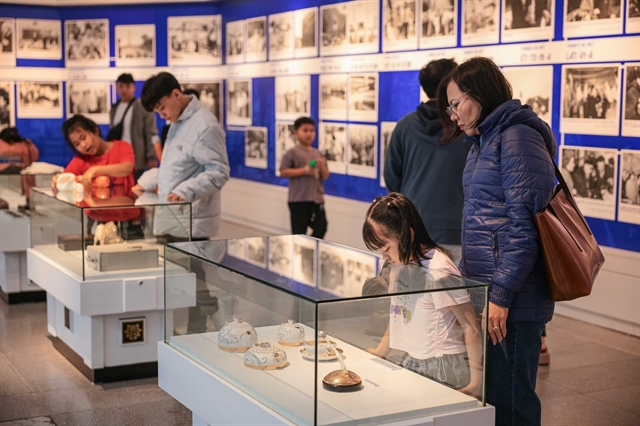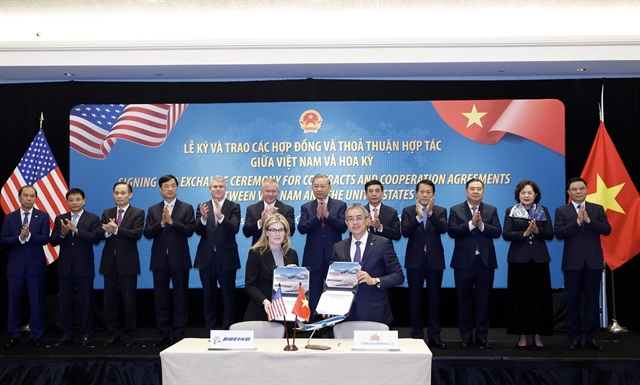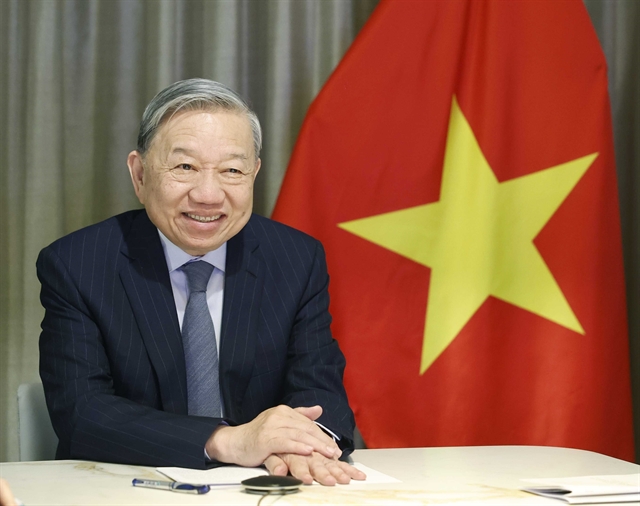 Politics & Law
Politics & Law

Leaders of the Greater Mekong Subregion (GMS) countries and Japan decided to lift the two sides’ co-operation to a strategic partnership at the 10th Mekong-Japan Summit Meeting in Tokyo yesterday.
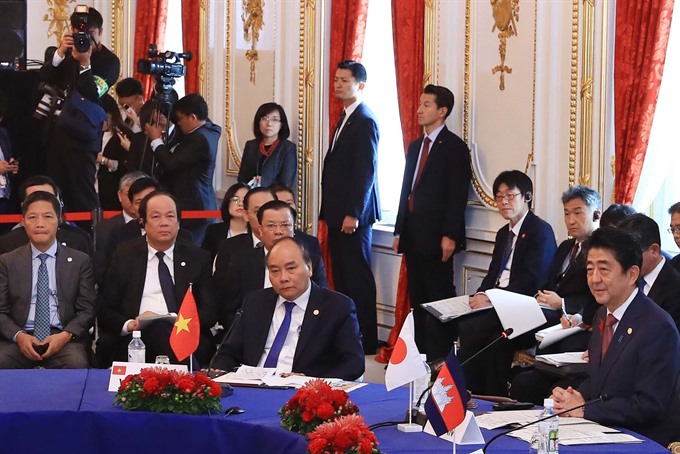 |
| Prime Minister Nguyễn Xuân Phúc (centre) joined leaders of Japan and the Greater Mekong Subregion countries at the 10th Mekong-Japan Summit that opened in Tokyo yesterday. — VNA/VNS Photo Thống Nhất |
Tokyo– Leaders of the Greater Mekong Subregion (GMS) countries and Japan decided to lift the two sides’ co-operation to a strategic partnership at the 10th Mekong-Japan Summit Meeting in Tokyo yesterday.
The event, chaired by Japanese Prime Minister Shinzo Abe, was attended by Vietnamese PM Nguyen Xuan Phuc, Cambodian PM Hun Sen, Lao PM Thongloun Sisoulith, Thai PM Prayut Chan-o-cha and Myanmar State Counsellor Aung San Suu Kyi.
The leaders reviewed their past co-operation, discussed major orientations for co-operation in the future, and exchanged views on international and regional issues.
They shared the view that 10 years since its foundation, the Mekong-Japan co-operation had recorded many achievements with the aim of building a GMS of long-term peace and stability; developing the regional economy and actively contributing to ASEAN integration; and sustainable development through regular high-level meetings, discussions on co-operation at all levels, and the implementation of projects in specialised fields.
Regarding the New Tokyo Strategy 2015 for 2016-2018, they welcomed the implementation of hundreds of projects in multiple areas, helping to improve infrastructure connectivity and promote economic – industrial cohesion and people-to-people exchanges between Japan and the Mekong region.
The GMS leaders appreciated Japan’s provision of over JPY750 billion (US$6.6b) in assistance for 2016-2018.
Agreeing to lift the Mekong-Japan co-operation to a strategic partnership, the two sides said future co-operation would focus on three main pillars: vibrant and effective connectivity, a people-centred society, and co-operation in healthcare, education and justice.
The representatives agreed to organise the Mekong-Japan Exchange Year 2019 to enhance understanding and exchanges among people of the GMS countries and Japan. They also agreed to realise a “Green Mekong”, focusing on fostering collaboration with international and regional organisations, especially the Mekong River Commission, in managing and sustainably using Mekong water resources. The countries would work together to cope with climate change; reduce, treat and recycle waste; and preserve and use fisheries resources in a sustainable manner.
During the event, the participants also discussed global and regional affairs, including the East Sea and Korean Peninsula. They reaffirmed a common pledge to maintain and promote peace, security and stability in the region, while resolving disputes by peaceful means, including fully respecting legal and diplomatic processes and not threatening or using force, in accordance with widely recognised principles of international law, including the 1982 United Nations Convention on the Law of the Sea (UNCLOS).
Speaking at the meeting, PM Phuc emphasised the role of and the contributions made by the Mekong-Japan co-operation to realise the ASEAN Community Vision 2025 and to regional peace, stability and development. The Mekong-Japan co-operation projects had made considerable contributions to infrastructure, human resources development and environmental protection in the GMS nations.
He also affirmed Vietnam’s commitment to continue to work closely with Japan and other GMS members to promote co-operation.
Suggesting directions for the future, the PM said the two sides should step up transport connectivity, including the Vientiane-Hanoi Expressway and waterway transport between Vietnam and Cambodia, and energy connectivity within the GMS region as well as between the region and non-GMS countries.
He suggested improving soft infrastructure connectivity, and building and implementing agreements and co-ordination mechanisms on facilitating transport, trade and digital connectivity among member nations. The countries should also boost industrial connectivity and prioritise the development of supporting industries; increase people-to-people connectivity, especially through education and training; and sign agreements on mutual recognition of vocational training diplomas and certificates.
They also needed to realise the joint vision on a Green Mekong with a focus on co-operation on sustainable water management, protecting the environment, responding to climate change, and developing smart and sustainable agriculture, he added.
PM Phuc recommended a Mekong-Japan innovation network be set up to foster connectivity and exchange among research, invention and startup centres in Japan and the GMS countries.
The summit highly valued and reflected the Vietnamese leader’s proposals in its documents.
In terms of global and regional issues, PM Phuc welcomed the positive outcomes of the bilateral summits between the Democratic People’s Republic of Korea and the US and the Republic of Korea. He voiced his support for denuclearisation in the whole Korean Peninsula in a peaceful manner and in line with resolutions of the UN Security Council.
He asserted that Vietnam would keep co-ordinating with Japan and the international community to solve humanitarian issues, including abduction, condemning the kidnapping of citizens between countries.
With regard to the East Sea issue, he recognised some positive improvements in negotiations but also voiced his concern over the fact that complex developments remained. He stressed the urgency of ensuring peace, stability, security, safety and freedom of navigation in and over the East Sea, calling for adherence to the 1982 UNCLOS, full and effective implementation of the Declaration on the Conduct of Parties in the East Sea, and the swift finalisation of an efficient and effective Code of Conduct in the East Sea.
At the end of the meeting, the leaders adopted the Tokyo Strategy 2018 for Mekong-Japan Co-operation in the 2019-2021 period.-VNS

